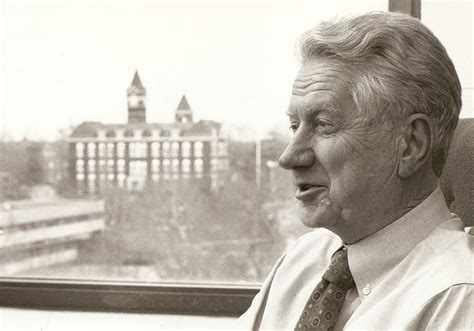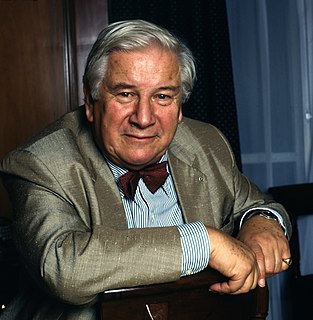A Quote by Ludwig Borne
History teaches us virtue, but nature never ceases to teachh us vice.
Related Quotes
Why is discipline important? Discipline teaches us to operate by principle rather than desire. Saying no to our impulses (even the ones that are not inherently sinful) puts us in control of our appetites rather than vice versa. It deposes our lust and permits truth, virtue, and integrity to rule our minds instead.
Do not grieve over the temptations you suffer. When the Lord intends to bestow a particular virtue on us, He often permits us first to be tempted by the opposite vice. Therefore, look upon every temptation as an invitation to grow in a particular virtue and a promise by God that you will be successful, if only you stand fast.
Cruelty, very far from being a vice, is the first sentiment Nature injects in us all. The infant breaks his toy, bites his nurse's breast, strangles his canary long before he is able to reason; cruelty is stamped in animals, in whom, as I think I have said, Nature's laws are more emphatically to be read than in ourselves; cruelty exists amongst savages, so much nearer to Nature than civilized men are; absurd then to maintain cruelty is a consequence of depravity. . . . Cruelty is simply the energy in a man civilization has not yet altogether corrupted: therefore it is a virtue, not a vice.
We pass for what we are. Character teaches above our wills. Men imagine that they communicate thier virtue or vice by overt actions, and do not see that virtue or vice emit a breath ever moment....One tendency unites them all. The voyage of the best ship is a zsig zag line of a hundred tacks. See the line from a sufficent distance and it straightens itslef to the average tendency.





































